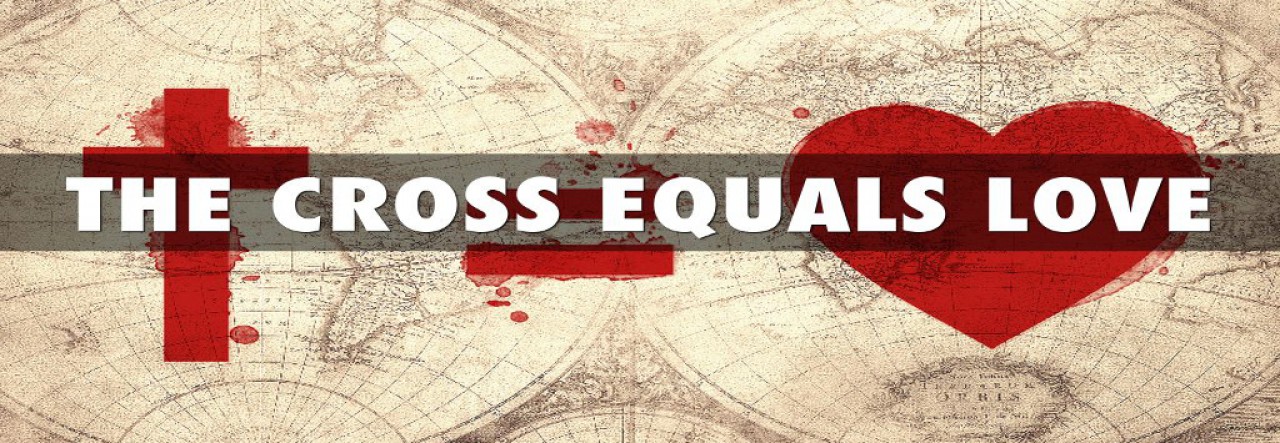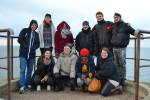Latviski – pēc tam (afterwards – in Latvian).
Today (it is a Sunday), as usually, I was attending my church, and we had, as usually, on the first Sunday of a month, the celebration of the Last Supper. Just before that, a lady preached/taught us on what it means. She talked about healing, and how a person can receive healing during the Supper. This also made me start to think about these things, and to set them in order, I wanted to put them down. Also, to maybe help some readers to understand this more, I will publish this. This is a very important topic, because the whole Church does this, both Catholics, Protestants and even Greek/Russian Orthodoxals, and have done it for the last two millenia, even though there have been different understandings on what it means.
Let us start with the event itself that is the last supper. Matthew writes about it in his Gospel, and we can find it in our 26th Chapter. Here it goes:
26 Now as they were eating, Jesus took bread, and after blessing it broke it and gave it to the disciples, and said, “Take, eat; this is my body.”27 And he took a cup, and when he had given thanks he gave it to them, saying, “Drink of it, all of you, 28 for this is my blood of the[c] covenant, which is poured out for many for the forgiveness of sins. 29 I tell you I will not drink again of this fruit of the vine until that day when I drink it new with you in my Father’s kingdom.”
Paul later remind Corinthians about the same in his first letter. Chapter 11:
23 For I received from the Lord what I also delivered to you, that the Lord Jesus on the night when he was betrayed took bread, 24 and when he had given thanks, he broke it, and said, “This is my body which is for[e]you. Do this in remembrance of me.”[f] 25 In the same way also he took the cup, after supper, saying, “This cup is the new covenant in my blood. Do this, as often as you drink it, in remembrance of me.” 26 For as often as you eat this bread and drink the cup, you proclaim the Lord’s death until he comes.
Then he continues:
27 Whoever, therefore, eats the bread or drinks the cup of the Lord in an unworthy manner will be guilty concerning the body and blood of the Lord. 28 Let a person examine himself, then, and so eat of the bread and drink of the cup. 29 For anyone who eats and drinks without discerning the body eats and drinks judgment on himself. 30 That is why many of you are weak and ill, and some have died.
Here, we have to ask the question – what do we have to discern? It is important, because this place says that because people do not discern this, they are weak and ill, and even some of the die. Obviously, it is something about the death of Jesus, because that is what this whole passage is all about. We have to understand, what did Jesus do.
600 years before these events, there lived a prophet. His name was Isaiah, and he prophesied about the future. Most of his prophecies were fulfilled in Jesus Christ, and this was one of them. It talks about his death. We can find it in Isaiah 53:
3 He was despised and rejected[b] by men;
a man of sorrows,[c] and acquainted with[d] grief;[e]
and as one from whom men hide their faces[f]
he was despised, and we esteemed him not.
4 Surely he has borne our griefs
and carried our sorrows;
yet we esteemed him stricken,
smitten by God, and afflicted.
5 But he was pierced for our transgressions;
he was crushed for our iniquities;
upon him was the chastisement that brought us peace,
and with his wounds we are healed.
This passage speaks about the death of Jesus, and this is what Paul wants us to remember when we have our last supper. We must realize that the punishment that Christ received, was in our place. We should have been pierced for our transgressions. We should have been crushed for our iniquities. We should have had the chastisement (punishment), but Christ took it for us. When we understand these things, also the last one comes into place – all our sicknesses, weaknesses, illnesses, and even death – Christ took it all on the Cross. We do not have to be ill – Christ took it. Because Isaiah speaks about it all together, it goes together. If you can believe that Christ took the punishment for our sins in our place, you have to believe also that he took our sicknesses in our place. We are healed with his wounds. If we remember this and realize this, if we are healed in Jesus` name, then we have had a proper Last Supper. We have remembered the work Jesus did at the Cross. Do this in remembrance of me.
Tagad latviski:
Šodien (is svētdiena), kā parasti, es apmeklēju savas draudzes dievkalpojumu, un mums, kā parasti mēneša pirmajā svētdienā, bija vakarēdiens. Tieši pirms tam, kāda dāma mums sludināja/mācīja par to, ko tas nozīmē. Viņa runāja par dziedināšanu, un kā cilvēks var saņemt dziedināšanu vakarēdiena laikā. Tas arī man lika domāt par šīm lietām, un lai tās sakārtotu, es gribēju tās pierakstīt. Un, lai varbūt palīdzētu kādiem lasītājiem šo saprast vairāk, es arī šo publicēšu. Šī ir ļoti svarīga tēma tāpēc, ka visa Draudze šo dara, gan Katoļi, gan Protestanti, un arī Pareizticīgie. Un visi to ir darījuši jau divus tūkstošus gadu, kaut arī ir bijušas dažādas izpratnes par to, ko tas nozīmē.
Sāksim ar pašu notikumu – ar Svēto Vakarēdienu. Matejs par to raksta savā Evaņģēlijā, un mēs to varam atrast mūsu 26. nodaļā. Lūk, kā tas skan:
26 Bet, tiem vēl ēdot, Jēzus ņēma maizi, svētīja, pārlauza un deva to Saviem mācekļiem un sacīja: “Ņemiet, ēdiet, tā ir Mana miesa.” 27 Un Viņš ņēma biķeri, pateicās un deva to tiem, un sacīja: “Dzeriet visi no tā. 28 Jo tās ir Manas jaunās derības asinis, kas par daudziem tiek izlietas grēku piedošanai.
Pāvils vēlāk atgādina Korintiešiem par to paši savā pirmajā vēstulē, 11. nodaļā:
23 Jo no Tā Kunga es esmu saņēmis, ko arī jums mācīju: ka Tas Kungs tanī naktī, kad tas tapa nodots, 24 ņēma maizi, pateicās, pārlauza un sacīja: ņemiet, ēdiet. Tā ir Mana miesa, kas par jums top dota; to dariet Mani pieminēdami, – 25 tāpat arī biķeri pēc vakarēdiena un sacīja: šis biķeris ir jaunā derība Manās asinīs. To dariet, cikkārt jūs to dzerat, Mani pieminēdami. 26 Cikkārt jūs no šīs maizes ēdat un no šī biķera dzerat, pasludiniet Tā Kunga nāvi, tiekāms Viņš nāk.
Tad viņš turpina:
27 Tad nu, kas necienīgi ēd šo maizi vai dzer Tā Kunga biķeri, tas būs noziedzies pret Tā Kunga miesu un asinīm. 28 Bet lai cilvēks pats sevi pārbauda, un tā lai viņš ēd no šīs maizes un dzer no šī biķera. 29 Jo, kas ēd un dzer, tas ēd un dzer sev pašam par sodu, ja viņš neizšķir Tā Kunga miesu. 30 Tādēļ jūsu starpā ir daudz vāju un neveselu un diezgan daudz ir mirušu.
Šeit mums ir jāuzdod jautājums – kas mums ir jāizšķir? Tas ir svarīgi, jo šeit ir rakstīt, ka tāpēc, ka cilvēki to neizšķir, viņi ir vāji un slimi un pat daži mirst. Protams, runa ir par Jēzus nāvi, jo par to šai rakstu vietā ir runa. Mums ir jāsaprot, ko Jēzus izdarīja.
600 gadus pirms šiem notikumiem dzīvoja pravietis. Viņa vārds bija Jesaja un viņš pravietoja par nākotni. Lielākā daļa viņa pravietojumu piepildījās Jēzū Kristū, un šis bija viens no tiem. Runa ir par viņa nāvi. Mēs to atrodam Jesajas 53. nodaļā:
3 Taisni otrādi, viņš bija nicināts, labāki ļaudis no viņa vairījās, vīrs, kam nebija svešas sāpes un kas bija norūdīts ciešanās, tāds, kura priekšā aizklāja vaigu, tā nicināts, ka mēs viņu ne par ko neturējām. 4 Taču viņš nesa mūsu sērgas un ciešanas, un mūsu sāpes viņš bija uzkrāvis sev, kurpretī mēs viņu uzskatījām par sodītu, Dieva satriektu un nomocītu. 5 Viņš bija ievainots mūsu pārkāpumu dēļ un mūsu grēku dēļ satriekts. Mūsu sods bija uzlikts viņam mums par atpestīšanu, ar viņa brūcēm mēs esam dziedināti.
Šī rakstu vieta runā par Jēzus nāvi, un to Pāvils grib, lai mēs atceramies, kad mēs baudām vakarēdienu. Mums ir jāsaprot, ka sods, ko Kristus saņēma, bija mūsu vietā. Mums vajadzētu tikt savainotiem par mūsu pārkāpumiem. Mums vajadzētu tikt satriektiem sava ļaunuma dēļ. Mums vajadzētu tikt pārmācītiem, bet Kristus to pats uzņēmās. Kad mēs šīs lietas saprotam, tad arī pēdējā nostājas savā vietā – visas mūsu slimības, vājības un pat nāve – Kristus to uzņēmās pie Krusta. Mums nav jābūt slimiem – Kristus to paņēma. Tāpēc, ka Jesaja par to visu runā kopā, tas viss iet kopā. Ja tu vari ticēt, ka Kristus uzņēmās sodu par mūsu grēkiem mūsu vietā, tev ir arī jātic, ka viņš paņēma mūsu vietā mūsu slimības. Mēs esam dziedināti ar viņa brūcēm. Ja mēs to atceramies un saprotam, ja mēs esam Jēzus vārdā dziedināti, tad mums ir bijis pareizs vakarēdiens. Tad mēs esam atcerējušies darbu, ko Jēzus izdarīja pie Krusta. Dariet to, mani pieminēdami.















